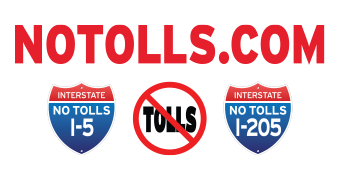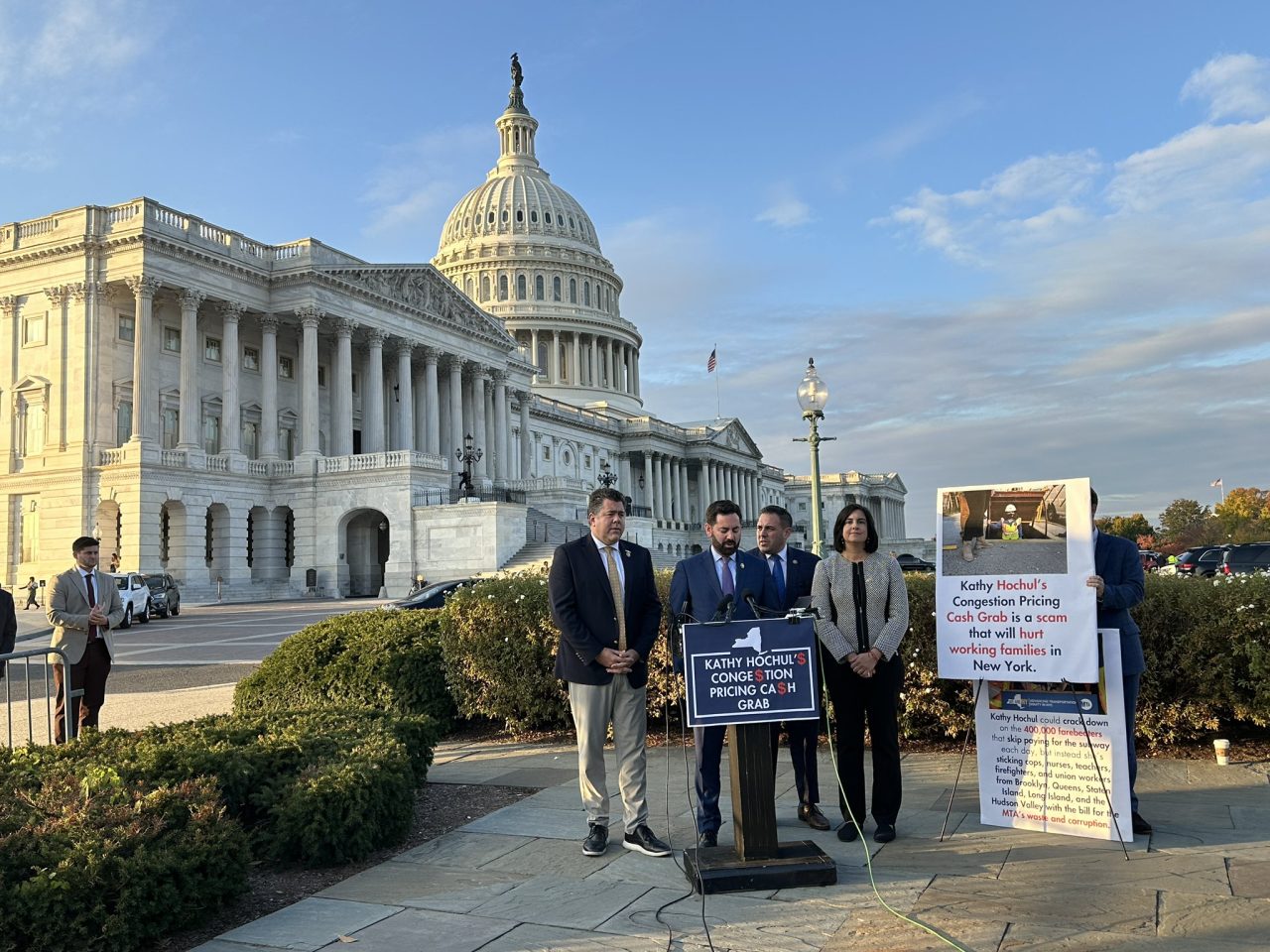Program to raise $1 billion for transit at risk
The license-plate readers are in place. The tolling plan has been approved by the feds.
After years of fits and starts, New York is moving ahead with plans to toll vehicles entering midtown and lower Manhattan, just as president-elect Donald Trump — a longtime critic of congestion pricing — is about to re-enter the White House.
Could Trump derail the landmark tolling program now that it is about to begin?
What You Need To Know
-
- In recent months, the president-elect has called congestion pricing a “disaster for NYC” that would put the city at a “disadvantage over competing cities and states”
-
- New York Republicans who have opposed the tolling plan, argue Donald Trump could — and should — derail the program once he takes office, claiming the Biden administration rushed environmental reviews
- Congestion pricing proponents say the best protection from intervention by Trump and others is getting the program off the ground before Trump is sworn in on Jan. 20
In recent months, the president-elect has called congestion pricing a “disaster for NYC” that would put the city at a “disadvantage over competing cities and states.” In a May social media post, he pledged to “TERMINATE” the program in his first week back in office.
New York Republicans who have opposed the tolling plan, argue Trump could — and should — derail the program once he takes office, claiming the Biden administration rushed environmental reviews.
“We believe strongly that the [Metropolitan Transportation Authority] has violated federal law,” Staten Island Republican Rep. Nicole Malliotakis said at a late-November press conference on Capitol Hill.
“The authorization of it should be revoked by the federal government, the Department of Transportation, and the EPA,” Rep. Mike Lawler said. “My view is the president should move ahead with that and let [Gov.] Kathy Hochul sue.”
Separately, those same lawmakers are proposing legislation aimed at blocking congestion pricing outright. However, with the incoming Congress poised to be tightly divided, whether such legislation could pass the House and Senate remains unclear.
Congestion pricing proponents say the best protection from intervention by Trump and others is getting the program off the ground before Trump is sworn in on Jan. 20.
Adie Tomer, a senior fellow at the Brookings Institution, told Spectrum News that once New Yorkers see the benefits, he believes it will be harder for Trump and others to reverse it.
“Once the light turns on and people actually experience what will likely be immediate reductions in congestion in those tunnels to say nothing of once you’re already in Manhattan … what we expect to see is that residents, business owners are going to say, ‘You know what? I actually like this program. I’m seeing positive results in my daily life, and I understand the value for money on this $9 fee,’” he said.
Hochul, who last month announced plans to revive congestion pricing after “indefinitely” pausing it in June, recently told reporters that time will tell what Trump will do.
She argues that the president-elect, as an employer in New York City, should understand the importance of public transit to the region.
“I hope we can form a partnership when it comes to shared priorities, like making sure that New York City and New York State thrive. And part of that is investing in public transportation,” she said.
Ultimately, Tomer said he believes legal challenges are likely the biggest potential threat to officially launching congestion pricing.
“If Gov. Hochul would have allowed this program to already turn on, most likely many of the legal avenues would have been cut off,” he said.


